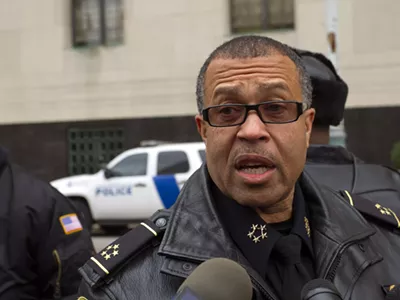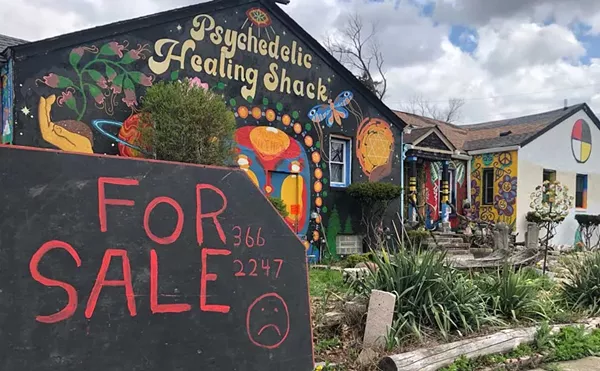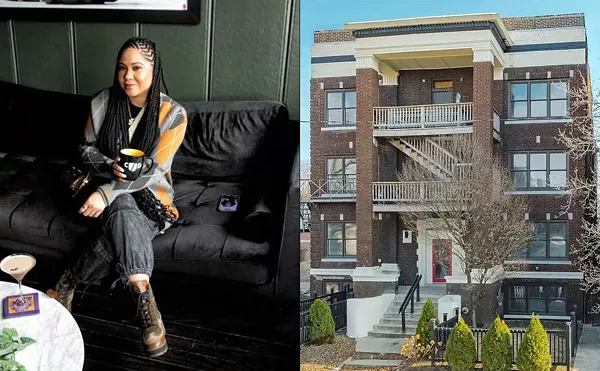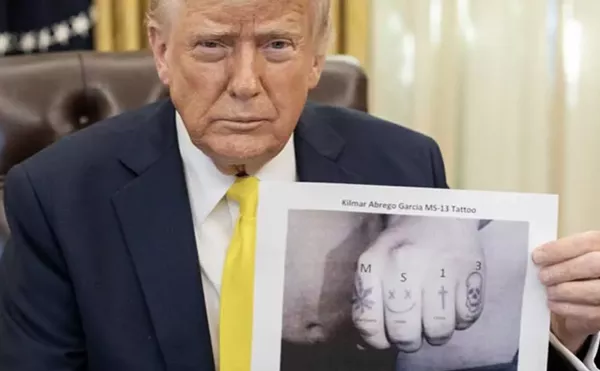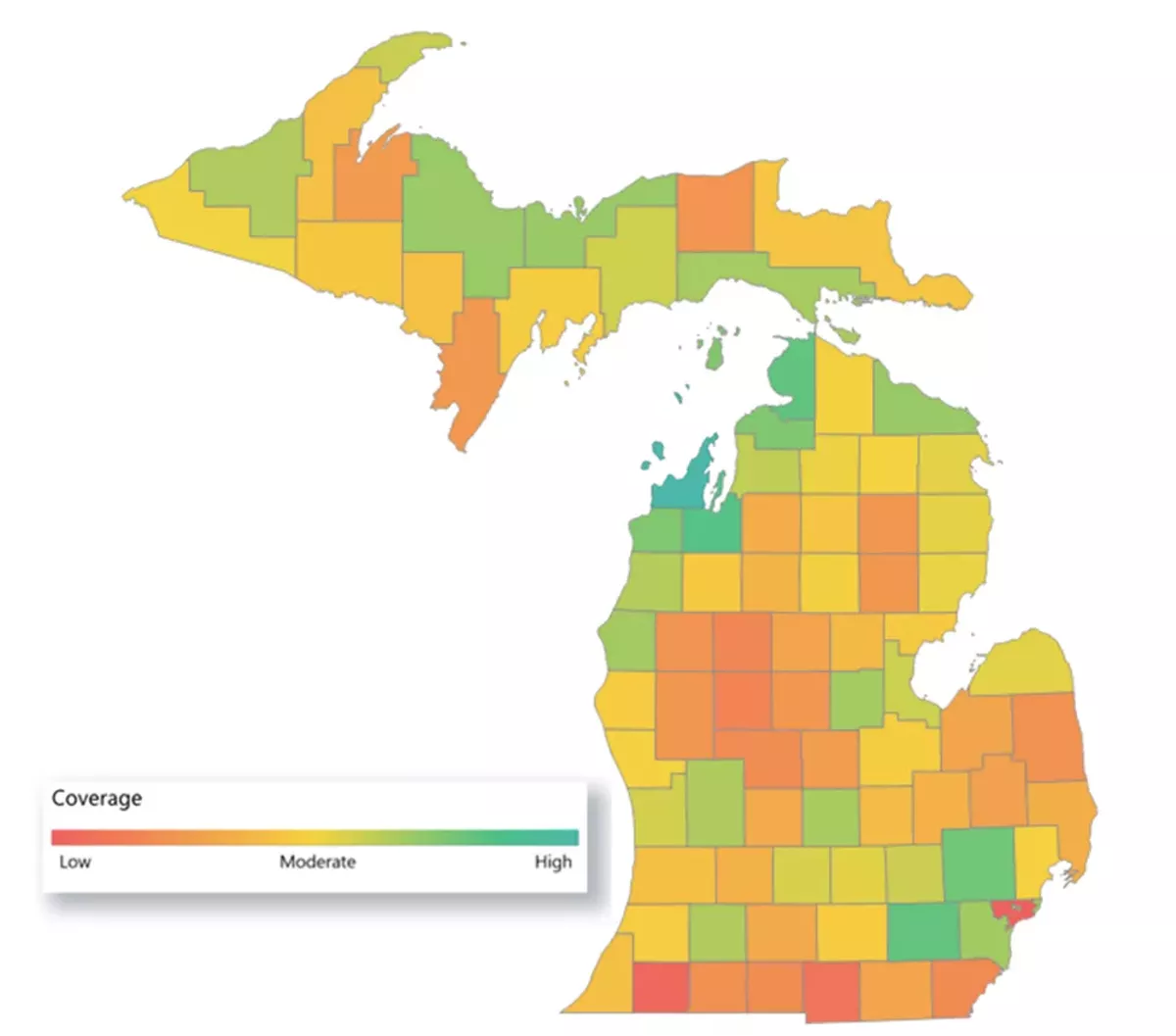

Audio By Carbonatix
[
{
"name": "GPT - Leaderboard - Inline - Content",
"component": "35519556",
"insertPoint": "5th",
"startingPoint": "3",
"requiredCountToDisplay": "3",
"maxInsertions": 100,
"adList": [
{
"adPreset": "LeaderboardInline"
}
]
}
]
Last month, Governor Gretchen Whitmer unveiled a "Vacc to Normal" plan to lift COVID-19 pandemic restrictions in phases 14 days after the state achieves various vaccination rate benchmarks. When 70% of the state is vaccinated, most pandemic restrictions will end (barring unforeseen circumstances like the emergence of vaccine-resistant strains).
On Monday, the state reached its first benchmark of 55%, which will lift restrictions making employers require remote work when possible and reopen many office buildings. "I am excited that 55% of Michiganders have gotten their first dose of the COVID-19 vaccine because it puts us one step closer to getting Vacc to Normal," Whitmer said in a statement. "Everyone is eligible to get their safe, effective shots, and it's on all of us to get vaccinated as soon as possible to protect ourselves, our families, and our communities."
However, the vaccination rate lags significantly in Detroit, where, as of Tuesday, only 32.9% of residents have been vaccinated — despite the presence of mass vaccination facilities like the Federal Emergency Management Agency-operated site at Ford Field and the drive-thru TCF Center, which have been operating for weeks.
That's also despite the fact that the pandemic has hit Detroit particularly hard. More than 2,000 Detroiters have died from the virus, and Black Michigan residents die of COVID-19 at a rate that's 1.7 times higher than white residents. Michigan has also been the top COVID-19 hotspot in the nation for more than seven weeks.
The reasons why vaccination rates in Detroit are lagging were apparent during a recent press junket. Last week, the city launched a $1 million FEMA-funded door-knocking and flyering campaign with dozens of canvassers fanning throughout neighborhoods to try and convince Detroiters to get vaccinated, and reporters were there to highlight the initiative. But as numerous outlets reported, the campaign, which has reached thousands of doors so far, doesn't seem to be going over that well.
According to The Detroit News, "Only a handful of Detroit residents answered their doors." And the people who did answer appeared to be overwhelmingly skeptical of the vaccines. The door-knocking initiative is led by the teams that led Detroit's 2020 Census count, who, it should be noted, also had trouble getting people to fill out the Census.
"I just wasn't pressed to do it. It's not a big thing to me," said Mecca Shabazz, a 26-year-old who lives in the Marygrove-Fitzgerald neighborhood, of getting vaccinated.
"My family members, including my mom, had COVID, but it wasn't bad, and now she and my grandparents are vaccinated." she added. "But I feel like I'm healthy and am just going to wait."
Leslie Fields, a 34-year-old Black woman, told ABC News that the vaccination effort calls to mind the infamous Tuskegee experiment, in which the government let hundreds of Black men suffer untreated syphilis for 40 years for research in exchange for what they said was free health care.
"I don't want to take it. I don't want to be experimented on," Fields said. "I don't judge people for taking the vaccination. We're all in limbo right now. We all have to make the best decision for ourselves."
To be clear, while the vaccines have not yet been officially approved by the Food and Drug Administration, it authorized them for emergency use after numerous rigorous studies found them to be safe and effective in preventing COVID-19. The use of the one-dose Johnson & Johnson vaccine was paused while researchers at the Centers for Disease Control and Prevention studied reports of blood clots, but resumed after it was found to affect a small number of women between the age of 18 and 59, with a median age of 37 years — 15 instances out of 6.8 million doses administered so far. As far as the two-dose vaccines by Pfizer-BioNTech and Moderna, most people report mild side effects that last about a day, including a sore arm or feeling a bit hungover — a small price to pay to be protected against a disease that has killed more than 580,000 Americans since it swept through the U.S. last year.
People from Detroit's suburbs don't have the same degree of hesitancy. As of Tuesday, the rest of Wayne County has a 58% of residents vaccinated, according to the state's vaccination dashboard. In Oakland County, 62% of eligible residents are vaccinated, while 63% of Washtenaw County residents are. Even in Macomb County — where support for former President Donald Trump, who has long downplayed the severity of the pandemic, remains strong — 51.5% of eligible residents have been vaccinated.
"The wealthiest, most highly educated people are getting vaccinated across this state in the largest numbers," Duggan said at a news conference last month. "The wealthier communities are virtually all vaccinated. They didn't listen to any of the nonsense. They had access to the best doctors, and they went out and they got vaccinated."
Canvasser Anthony Brinson, 43, told The Detroit News he's hopeful Detroiters will change their minds when they see more people vaccinated.
"I think when they know the facts, it will help," he said. "This is a safe vaccine that's out for us to take. Why not take advantage of it?"
The city has launched other efforts to help encourage vaccinations, including opening smaller facilities at churches and high schools in the neighborhoods. The city will also give $50 gift cards to people who bring eligible Detroiters to get vaccinated.
When 60% of the state's residents are vaccinated, capacity at sports stadiums, banquet halls, conference centers, and funeral homes will rise to 25%, and 50% at gyms, while restaurants and bars will no longer have an 11 p.m. curfew. At 65%, all indoor capacity limits will be lifted.
Detroiters can find a vaccination location by texting their address to 313-217-3732, calling the city's COVID-19 hotline at 313-230-0505, or at detroitmi.gov/health.
Stay connected with Detroit Metro Times. Subscribe to our newsletters, and follow us on Google News, Apple News, Twitter, Facebook, Instagram, or Reddit.


